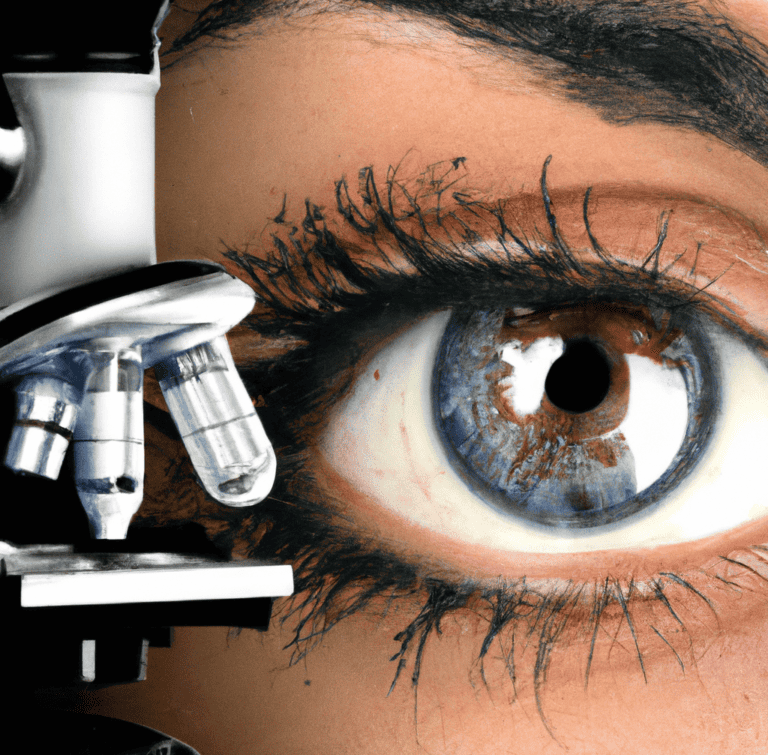Introduction to the Future of Eye Care: The Role of Regenerative Medicine

Regenerative medicine is revolutionizing healthcare by focusing on repairing or replacing damaged tissues and organs. In the realm of eye care, this innovative field offers the potential to restore vision by healing or replacing damaged eye components like the retina or cornea. Imagine a future where a diagnosis of macular degeneration or glaucoma offers not just management but hope for vision restoration through advanced therapies.
Why Regenerative Medicine Matters to You
If you’re a patient dealing with eye health issues or simply curious about the future of eye care, regenerative medicine is a subject you’ll want to follow. Unlike traditional treatments that mainly manage symptoms, regenerative medicine aims to address the root causes of eye conditions. This approach offers a more permanent solution, and it’s already transitioning from theoretical research into real-world clinical trials. The implications are profound, promising improved quality of life and the potential to regain lost vision.
Specific Applications in Eye Health
Retinal Diseases
Regenerative medicine offers promising solutions for retinal diseases like age-related macular degeneration and retinitis pigmentosa. Stem cells can be used to replace damaged retinal cells, offering the potential for restored vision. Clinical trials are underway to test the efficacy of these treatments (Wiley Online Library, 2021).
Corneal Regeneration
For those suffering from corneal diseases or damage, regenerative medicine provides options for corneal tissue engineering and stem cell transplantation. These approaches aim to restore the cornea’s transparency and function, reducing the need for corneal transplants (Frontiers in Bioengineering and Biotechnology, 2020).
Optic Nerve Repair
Conditions like glaucoma and traumatic optic neuropathy damage the optic nerve, leading to vision loss. Regenerative medicine is exploring the use of stem cells and gene therapy to promote the regeneration of optic nerve cells. Clinical trials are in progress to evaluate the effectiveness of these treatments (PMC, 2019).
Gene Therapy
Gene therapy is another avenue within regenerative medicine that holds promise for treating inherited eye diseases. By targeting the faulty genes responsible for conditions like Leber’s congenital amaurosis, gene therapy aims to correct or replace the defective gene to restore normal vision (National Eye Institute, 2019).
Challenges and Ethical Considerations in Regenerative Medicine for Eye Care
While the promise of regenerative medicine is undoubtedly exciting, it’s essential to consider the challenges and ethical implications that come with these advanced therapies.
Safety and Efficacy
Clinical trials serve as the cornerstone for validating the safety and effectiveness of regenerative treatments. These rigorous studies are designed to ensure that new therapies not only work as intended but also do not pose undue risks to patients. It’s crucial to remember that while the potential benefits are significant, these treatments are still in varying stages of research and testing.
Ethical Concerns
The use of stem cells, especially embryonic stem cells, introduces ethical complexities that must be carefully navigated. Questions around the source of these cells and the ethical implications of using them for medical treatments are subjects of ongoing debate. Ethical guidelines and oversight are essential to ensure that the science progresses responsibly.
Cost Implications
Another challenge is the cost associated with these cutting-edge therapies. Regenerative medicine often involves specialized equipment, advanced technologies, and highly skilled professionals, all of which contribute to high treatment costs. As a result, accessibility becomes an issue, raising concerns about healthcare inequality and the availability of these treatments to all individuals, regardless of their financial situation.
By understanding these challenges and ethical considerations, we can approach the future of regenerative medicine in eye care with a balanced perspective, appreciating both its immense potential and the complexities that come with it.
Future Prospects in Regenerative Medicine for Eye Care
As we look to the future, regenerative medicine holds the promise of transforming eye care in ways we can only begin to imagine. From restoring vision in cases of degenerative diseases to repairing damaged tissues, the possibilities are both exciting and hopeful. At Compton Eye Associates, we are committed to staying at the forefront of these innovations. We believe in not just treating but enhancing the quality of your vision and life. We invite you to visit us to learn more about the latest advancements in eye care and how they can benefit you. Together, let’s embrace the future of eye care, where the impossible becomes possible.
Thank you for reading, and we look forward to seeing you at Compton Eye Associates, where your vision is our focus.
References
- Wiley Online Library. (2021). Stem cell therapy for retinal diseases. Retrieved from Wiley Online Library
- Frontiers in Bioengineering and Biotechnology. (2020). Corneal Regeneration: A Review of the Literature. Retrieved from Frontiers
- PMC. (2019). Regenerating Eye Tissues to Preserve and Restore Vision. Retrieved from PMC
- National Eye Institute. (2019). NEI FY2017 Budget Request. Retrieved from NEI